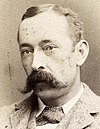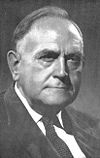Carolina
The Dominion of Carolina | |
|---|---|
| Motto: "Domine Dirige Nos" | |
| Anthem: Rise, O Voices of Carolina | |
| Capital | Montgomery |
| Largest city | Montgomery |
| Official languages | Reynish |
| Recognized languages | Mbele, Xhoni |
| Ethnic groups | Reynish 28%, Mbele 39%, 33% Xhoni |
| Demonym(s) | Carolinan |
| Government | Semi-Constitutional Monarchy |
• King | James V Crossland |
• Prime Minister | Alistair I. Smith |
| History | |
| Population | |
• 1936 estimate | 6,700,000 |
| Currency | Carolinan Pound |
| Driving side | left |
Carolina, officially the Dominion of Carolina, is a soveriegn state in southeast Nymera in the world of Verthandi. Carolina, is a sovereign nation located in southeastern Nymera. Carolina is bordered by the Yeye Kingdom to her east, Kasunguland to her north, the Xanan Confederacy and Freijan Nymera to her west and Auberian Nymera to her south.
The population of the country is distributed throughout its main coastal cities and vast rural regions. The most populous cities are Montgomery followed by Providence and the inland city of Salisbury. The Carolinan countryside is scattered with small farming settlements, designated safari lands and Mbelestan reservations set aside for the native tribes. In terms of total land area, Carolina is very rural with vast economic zones dedicated to logging, mining, farming and large resource exploration projects.
Carolina is a constitutional monarchy and a Dominion within the Reynish Empire with its capital located in Montgomery. Montgomery is also the largest city in the country and serves as its cultural and commercial center with a sprawling seaport and heavy development due to significant investments by the Kingdom of Reyneland. The second largest city in Carolina is the inland city of Salisbury which acts as a transportation hub for resources extracted from more rural inland areas and the center of Carolina's inland transportation network. Carolina has a separation of powers between its Executive, Judicial and Legislative branches and is currently hosting the Reynish monarchy which is in exile due to the Altische occupation of Reynland.
History
Pre-Colonial History
Discovery and Colonization
Elevation to the Status of Dominion
Constitution of 1899
Carolina during the Great War
Carolina during the interwar years
The Reynish Emergency
The Great Reynish Exodus
Geography
Government
Constitution of 1934
Monarchy
Prime Minister
Imperial Court of Justice
Parliament
Current Parliamentary Composition
Politics
Political Parties in Carolina
| Party | Position | Background and Ideology | Leader | Seats in the Carolinian House of Commons | Status |
|---|---|---|---|---|---|
| Right | The United Federal Party is the product of a merger between the two parties which once dominated Carolinian politics, the United Party and Federal Party. Representing the right-wing, pro-imperial elements of pre-Altische occupation Carolina, the party has come to support subsidiarity, social conservatism and broadly supports the cause to restore the Kingdom of Reyneland. In general, the party is known for drafting the constitution of 1934 which replaced the governor general with the King and guarantees home rule once the Kingdom of Reyneland is restored and espouses a political ideology characterized by constitutional monarchy and conservative liberalism. | Sir Alistair Smith | 31 / 50 |
||
 |
Center-right | The Country Party is an agrarian, socially conservative party of social democrats. The Country is the party widely supported by rural farmers and laborers who have deep roots in Carolina. The party platform advocates for social security, state control of railways and utilities, subsidies for farmers, and supports farming and fishing subsidies, infrastructural improvements to smaller towns and rural areas, protectionism and the party also has a large component which advocate for blue laws prohibiting work on Sundays and holy days. The party frames its economic program as a form of social capitalism and officially denounces left-syndicalism and socialism as extreme and disproven ideologies. The party is characterized by its rural populism and is the center of mainstream left wing labor politics in Carolina. While the party does not officially condone republican politics, there is a small, quiet republican tendency within the party's ranks. In addition to this there is a small, but significant faction within the Country party which are staunch pacifists and prohibitionists. | Nathaniel Crossland | 9 / 50 |
|
 |
Right to far-right | The Reynish Imperial Association or RIA is a big tent party of right wing, royalist, revanchist and anti-Altische political tendencies. The RIA can be described broadly as a neo-imperialist party characterized by Reynish nationalism and corporatism and the party is known for its significant base of support being found among recent arrivals from Reynland after the Altische occupation. Internal factions within the RIA include Reynish Brotherhood hardliners, the Royal Society and the National Syndicalists. | Sir William Howard | 7 / 50 |
|
 |
Centre-left to Centre | The Liberal Party is the sole socially liberal political party in Carolina advocating for post-racialism and total secularization. The party supports free trade and a modest welfare state with a particular focus on overhauling welfare in impoverished urban areas. The party's base of support is primarily concentrated in the city of Providence and surrounding townships and has a significant base of support among Reynish migrants who previously had supported the Reynish Social Democratic Labor Party prior to the Altische invasion of their homeland. The party is moderate on the question of restoring the Kingdom of Reyneland with support for intervention being strongest among the migrant section of the party. | Marc Jameson | 3 / 50 |
Political Movements in Carolina
Reynish Brotherhood
See main article: (Reynish Brotherhood)
Political History
List of Heads of State
List of Monarchs
List of Governor Generals
List of Heads of Government
Key:
United Party National conservatism, Jingoism
Federal Party Conservative liberalism, Federalism
Country Party Social conservatism, Social democracy, Manifest destiny (Historical)
UFP Conservative liberalism, Subsidiarity, Irridentism, Constitutional monarchy
| No | Portrait | Term | Term | Mandate | Affiliation | ||
|---|---|---|---|---|---|---|---|
 Prime Minister of the Dominion of Carolina Prime Minister of the Dominion of Carolina  | |||||||
| 1 |  Sir William Graham (1845-1932) |
1 | 2nd of May, 1901 |
7th of March, 1906 |
Majority support from the House of Commons | Independent | |
| 2 | 7th of March, 1906 |
19th of April, 1911 |
United Party Majority Government | United Party | |||
| 2 |  Sir Henry Lavander (1860-1932) |
1 | 20th of April, 1911 |
29th of April, 1917 |
Federal Party Minority Government | Federal Party | |
| 3 |  John L. Holdsworth (1872-1919) |
1 | 2nd of May, 1917 |
August 10th, 1919 |
Country Party Minority Government | Country Party | |
| 4 |  Sir Percival Gordon (1853-1935) |
1 | 30th of August, 1919 |
29th of August, 1920 |
Country Party Minority Government | Country Party | |
| 2 | 30th of August, 1920 |
29th of August, 1925 |
Country Party Majority Government | Country Party | |||
| 5 |  Sir Nicholas V. Talbot (1853-1935) |
1 | 30th of August, 1925 |
29th of August, 1926 |
United Party minority government | United Party | |
| 2 | 30th of August, 1926 |
29th of August, 1928 |
United - Federal Coalition government | United Party | |||
| 3 | 30th of August, 1928 |
29th of August, 1933 |
UFP Majority Government | United Federal Party | |||
| 6 |  Sir Andrew Mitford (1853-1935) |
1 | 30th of August, 1933 |
29th of August, 1934 |
UFP Majority Government | United Federal Party | |
| 2 | 30th of August, 1934 |
- | UFP Majority Government | United Federal Party | |||



